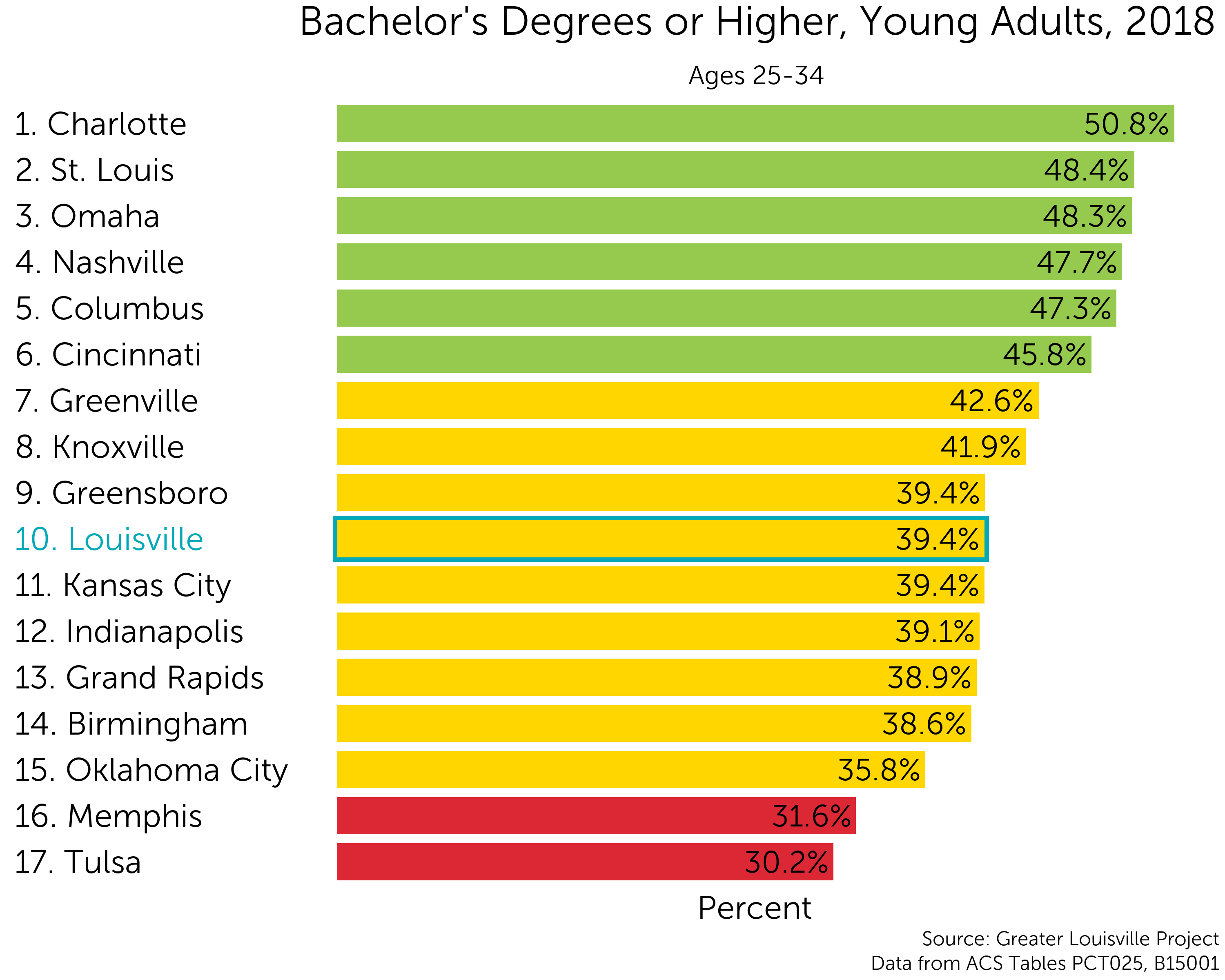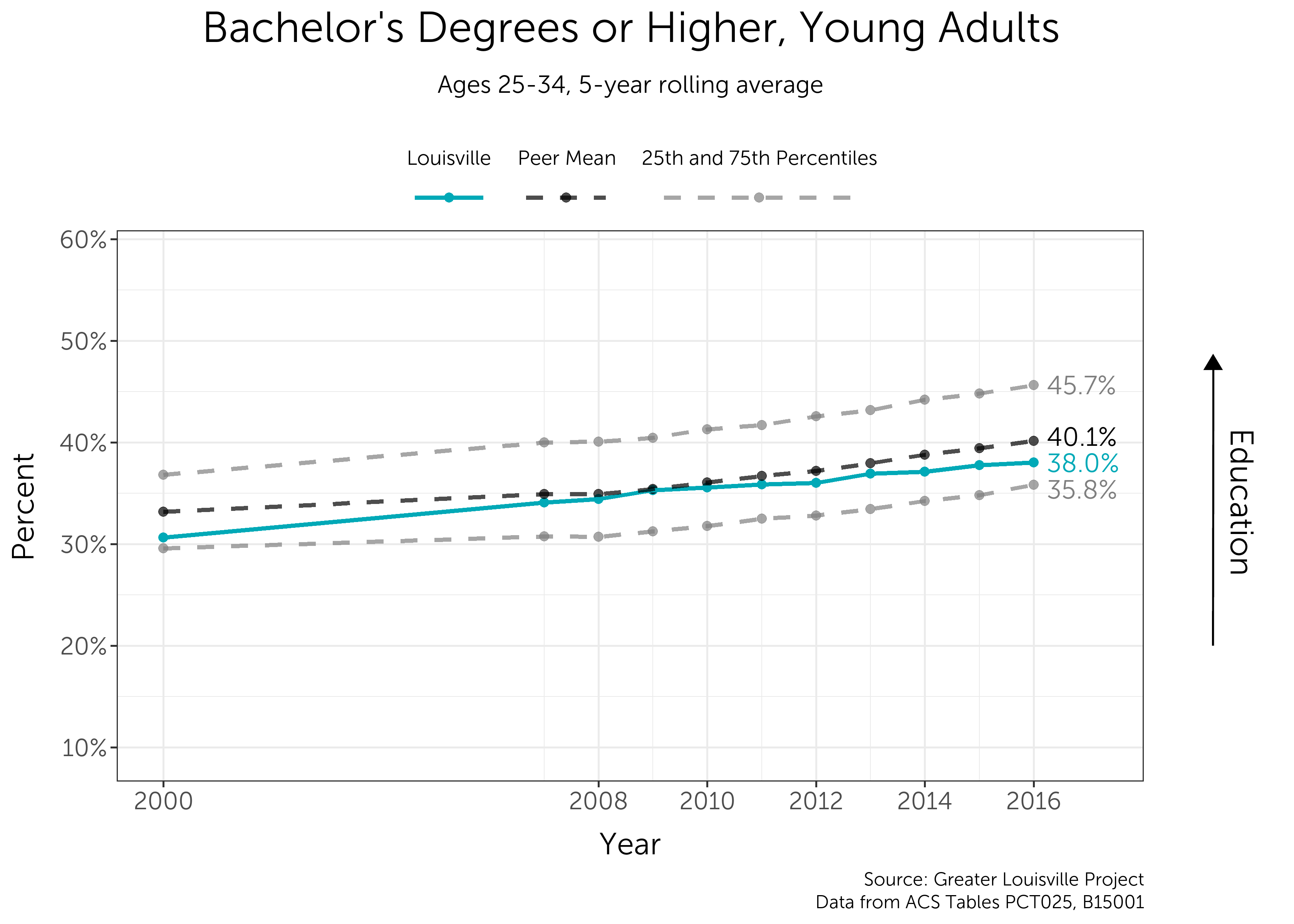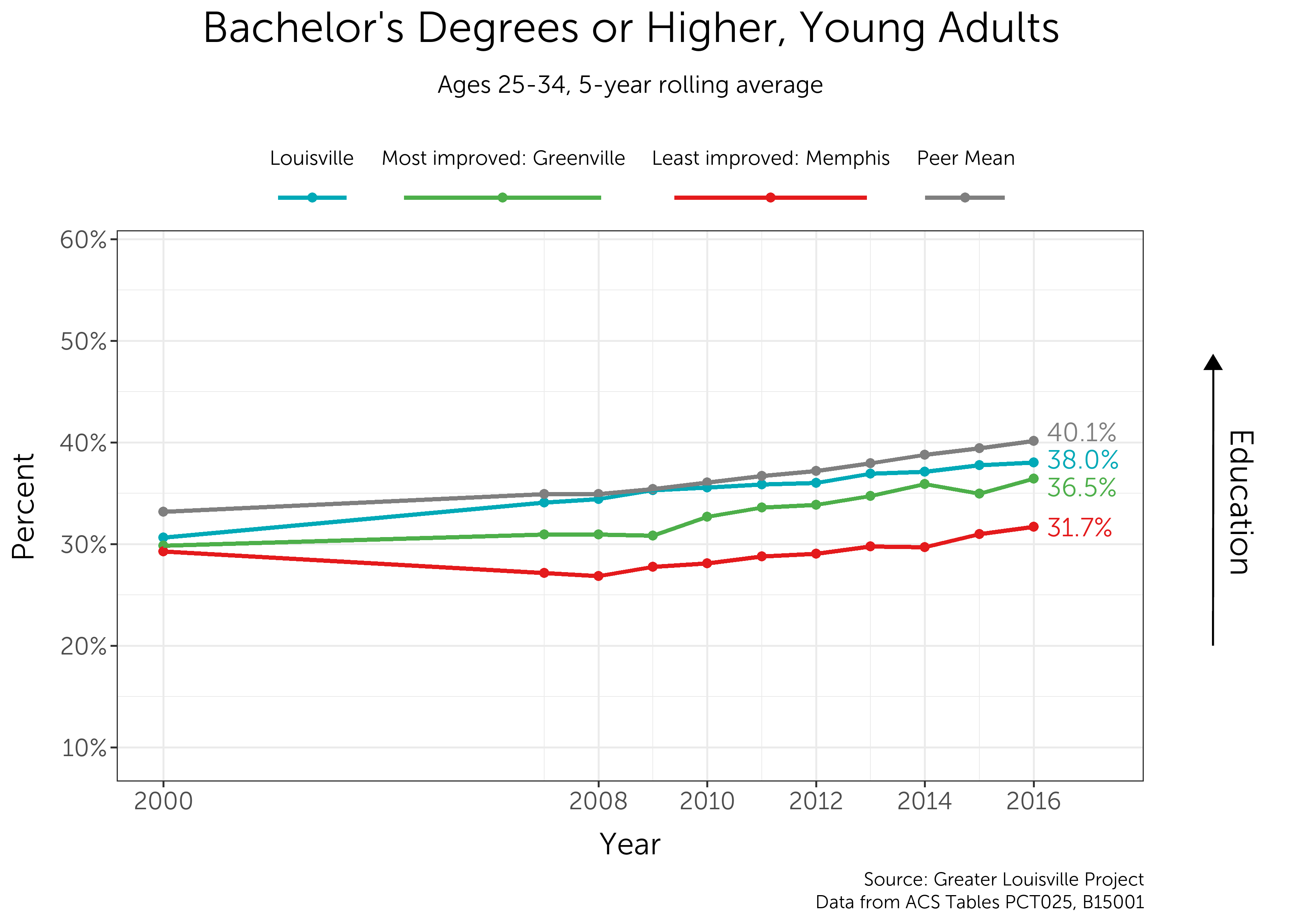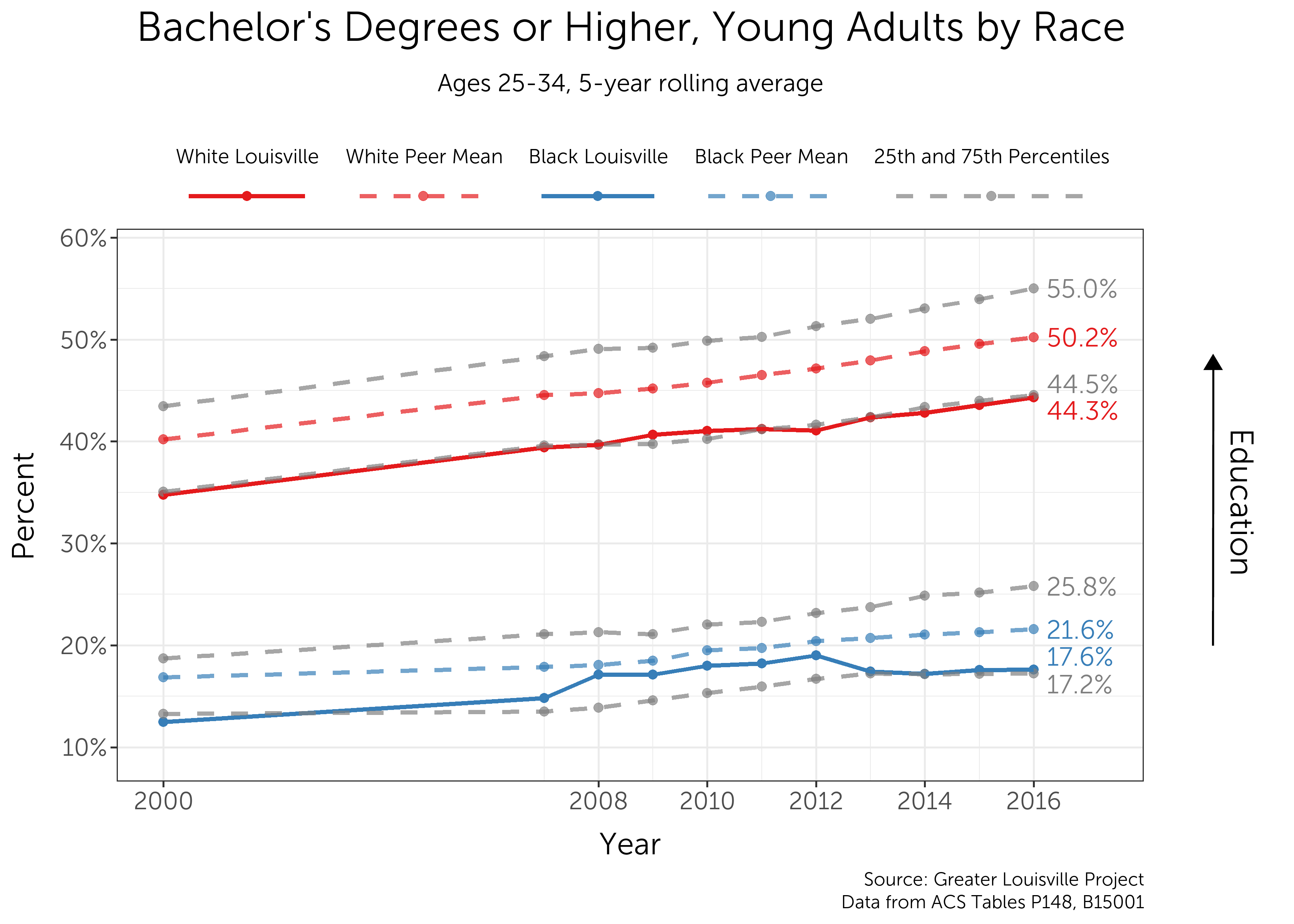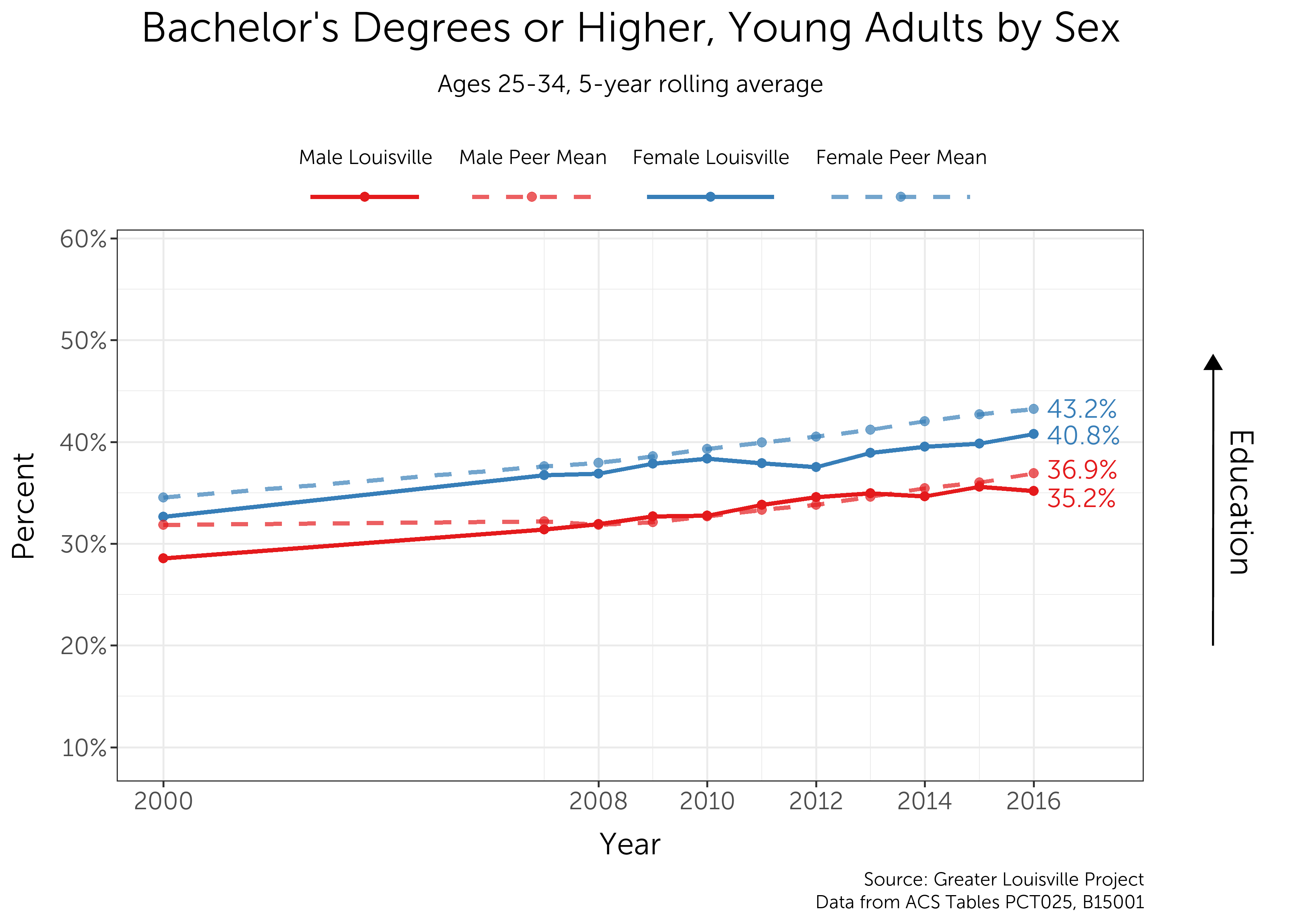Where are young adults with bachelor’s degrees in Louisville?
While 32.7% of young adults hold bachelor’s degrees or higher in Louisville, the prevalence of degrees varies substantially across the city. In the map to the left, areas where more young adults have bachelor’s degrees or higher are purple, while areas where fewer young adults hold bachelor’s degrees or higher are white. Similar to other maps of post-secondary degrees, there is a distinct divide between western and eastern Louisville.
Post-secondary educational achievement is most concentrated the Highlands where nearly 64% of the young adult population have at least a bachelor’s degree. Conversely, the lowest concentration of earned bachelor’s degrees can be seen in the Portland neighborhood, where less than 3% of young adults have earned a bachelor’s degree or higher.
Scroll over the map to see values for each neighborhood. Zoom in to see street names that form that boundaries of each neighborhood.

